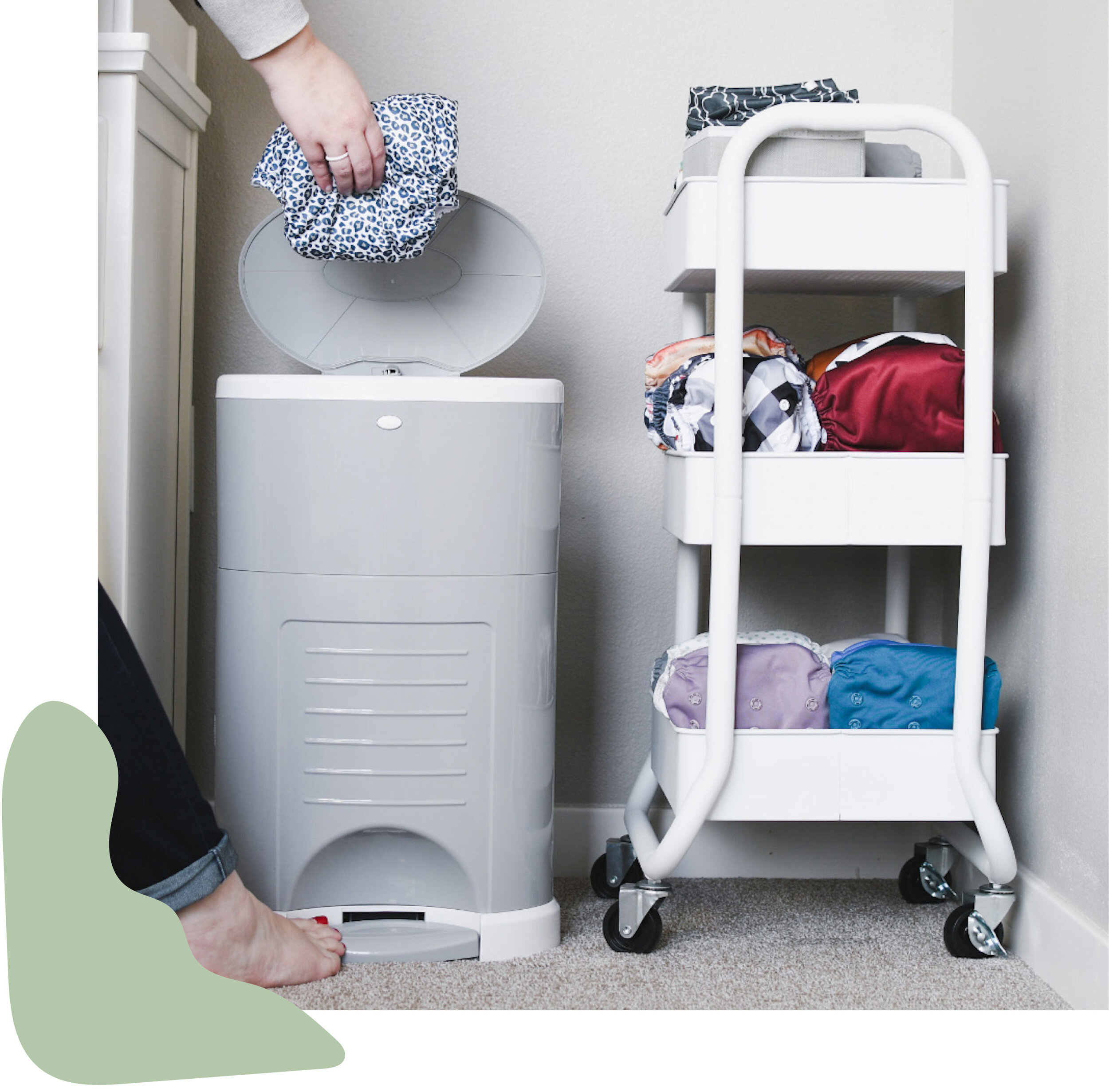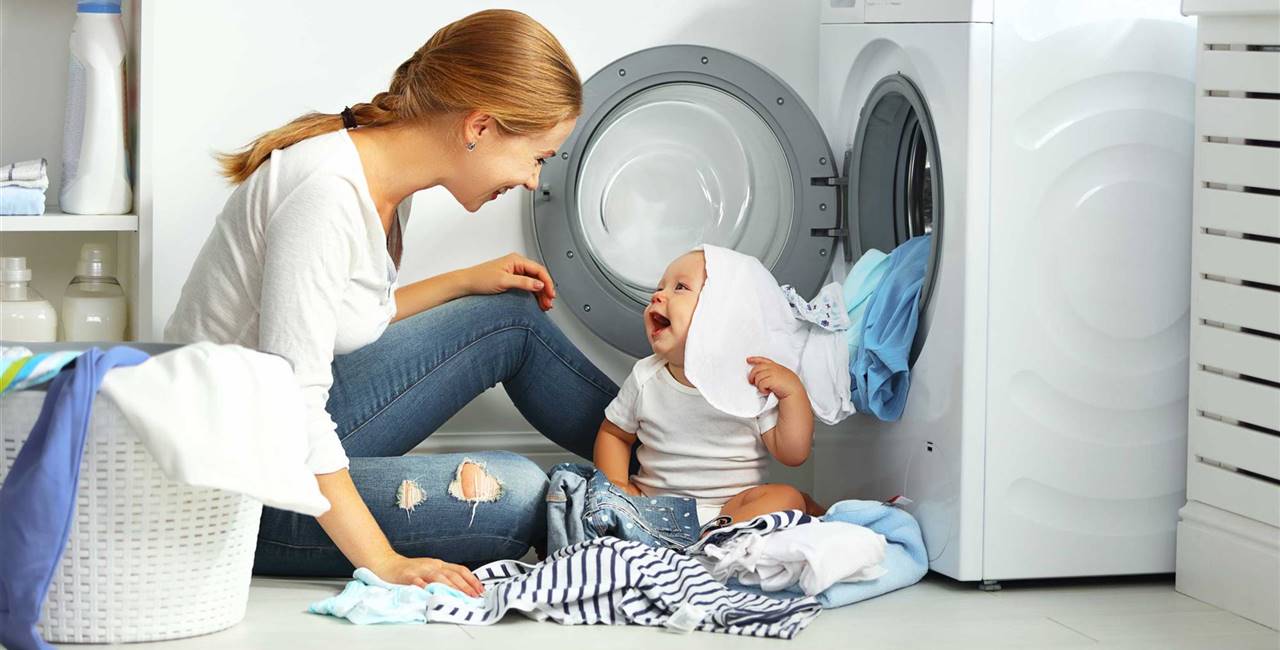
If you change disposable diapers for Cloth diapers It means you'll have some extra clothes to wash, a little more work, but it's worth it. It is a way to generate less waste and save money.
Also, these cloth diapers, which are usually made of cotton and fleece, are more comfortable for the baby (and prettier) than disposable ones. Although there is something you will not save yourself from, the diaper rash. This problem, for now, continues to happen whatever you use.
Should we change the wash cycles?
The method described here is quite simple, but effective. Consists in limiting how often you should remove diapers fabric and prevent moisture repellency.
What water and detergent do you use for the washing machine?
The first thing you should know is what type of water you have at home. If it is a type of hard water, It is possible that some detergents do not clean as well as you would like ... Yes, it is not a problem with the detergent but with the water, as we can see in a study published in Wiley Online Library. That is why you should choose the detergent according to the type of water.
Second, you have to choose a detergent that works well with cloth diapers. Most common laundry detergents have additives They can collect on the fabric and cause skin problems, especially if the diapers are not rinsed well enough.
A basic detergent, no optical brighteners or additional enzymes, tends to work better. According to a study published in hindawi, BiomedResearch International, enzyme additives can be a problem for baby's sensitive skin.
Many cloth diaper companies make their own soaps. The ecological detergents They are usually a good option, since they tend to have fewer additives.
Prepare diapers before washing
Don't worry, you don't have to go to great lengths to clean cloth diapers before putting them in the laundry bin.
If you're concerned about stains or washing it in the same machine that cleans your own clothes, you might consider diaper liners. These thin, porous strips are placed in the "containment zone" of the diaper and trap solids. 4
Some liners are also helpful if you need to put zinc oxide diaper cream on them, as these products can damage cloth diapers.
Stains, residual odor, and diaper wear They can be reduced by the frequency with which you wash clothes. If you spend many days washing it, mold stains can come out. It is best to wash cloth diapers every two to three days, maximum.
How do you have to do the day you go to wash them?
The basic method is to do a cold water rinse followed by a very hot wash. Nowadays you can program the washing machines to do the washes in a row with different temperatures. Starting with cold water is important because helps reduce blemishes. And finishing with a hot water wash makes the diaper come out cleaner.
For the first step, you have to use a cycle of "Quick wash" with cold water, a small amount of detergent and a tablespoon of oxygenated powder. When the first wash is done, check that the folding tabs are still secured.
Then run a second wash with very hot water. Use a normal amount of laundry detergent. You can also include a small spoonful of baking soda to enhance cleaning.
Rinse, rinse, rinse!
For hot washing, use the longest setting on your washer and set it to do an extra rinse. The more water you use, the less chance of residue remaining.
Other washing methods
If you can't set two different wash cycles, use a hot water wash and add a pre-wash cycle along with an additional rinse. So much the prewash cycle as well as the additional rinse they do it with cold water. In some washers, this method results in slightly less rinse, so it's best to use two cycles. But if the possibility does not exist, this is better than nothing.
You may have to experiment a little with your washing machine to see which combination of cold water for stains, hot water for cleaning and rinsing will work best for your diapers. RAlways check the instructions of the diaper manufacturer because each manufacturer is different.
Using bleach and vinegar
Some cloth diaper manufacturers recommend the use of bleach to keep diapers cool. But in other cases, the use of bleach can destroy the diaper. That is why we insist on look at the manufacturer's instructions before using any product.
If you need to use bleach, do so in moderation. Remember that it is a very strong chemical and can damage fabrics if you use it in quantity or too often.
Vinegar is usually damaging to the diaper if used in moderation, but don't let that fool you into thinking you can use it without measure. !Vinegar is a powerful cleansing acid! It's great for softening fabrics and freshening up diapers, but as with bleach, very little should be used to avoid damaging your diapers.
What about drying the diaper?
Cloth diapers are best dried outside in the sun. The sun destroys bacteria. Cloth diapers always smell fresher and they have fewer spots if they get a good dose of sun.
If you can't dry diapers outside, a clothesline indoors is also a good method. The downside of air drying, especially indoors, is that it is time consuming, but wears them less than if we use a dryer.
High temperatures can damage elastics, snaps, and waterproof linings. If you are going to use a tumble dryer Be sure to read the instructions and check the maximum temperature that can be used to dry the diaper.
Say no to fabric softeners
Although there is no total consensus on this, cloth diapers are not always friends with softeners because they contain fragrances and chemicals that are potentially dangerous for the health of your baby.

